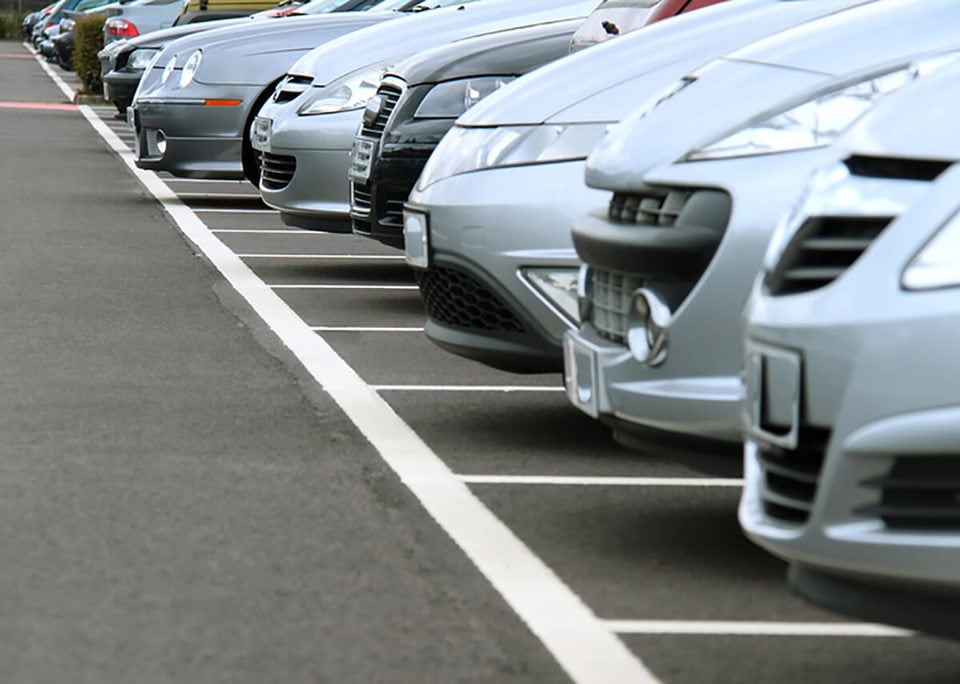Choosing options for cars can be a complex subject. Sometimes an employee’s car allowance will enable them to add equipment to a standard model and keep within the budget.
We spoke to CAP’s Mark Norman for advice on what were the best options to choose. He said, as a general rule, that you should not expect to see any return on the investment.
However, there are some options that drivers will enjoy or find useful and that will make the cars more desirable at de-fleet time.
Paint – Norman says white has become fashionable and now the few white cars that go through auction are in high demand. “White used to be associated by police cars,” ha said. “Which was one of the reasons it used to be unpopular, but now most police cars are silver.” There is no hard and fast rule about a particular colour being the best because it depends on the car. Norman says flat black is usually the best return on investment because it doesn’t cost any more than other solid colours, but one thing to be wary of is that black paint is notorious for showing its age.
Wheels – Generally good alloy wheels will be attractive on the used market, according to Norman. If you spend up to the value of £500 on the cost of an upgrade on a new car, you’re likely to see a £200 premium on it as a used car compared with a steel-wheeled model. However, if these become badly scuffed, all of that potential premium might be spent on having them refurbished. Larger wheels are also attractive and it’s common practice on a lower medium car perhaps to upgrade from 16 inches to 17 inches, but there are SMR implications when doing this. Tyres on 17-inch wheels will be more costly to replace than those on 16-inch wheels. When a manufacturers offers an alloy lookalike in place of a steel wheel with plastic covers, such as Vauxhall with its ‘structure wheels’, this is often as desirable as an alloy wheel on the used market.
Parking sensors – These are not worth a great deal on the used market although if a car is likely to be sold to a more mature customer where mobility issues come into play, they might make a car more desirable. However, there are some good aftermarket systems that cost from about £50 that do the job just as well. It may be worth remembering that choosing parking sensors might also avert low speed dents and scrapes that would require smart repairs.
Satellite navigation – A £300 portable sat-nav system that is capable of accepting online updates is now seen as perfectly adequate for most cars without a factory-fit system. Norman says: “It’s not the end of the world if a premium badge car doesn’t have a factory-fit sat-nav system these days.” He added that if a car gains £150 on the used market through having a sat-nav system fitted, it has done very well. And used car customers also won’t distinguish between an entry-level factory-fit system and a premium system, such as the difference between BMW’s Business Navigation and Professional Navigation, the latter having a £400-plus premium over the former when new.
Air conditioning – Most cars now come with air conditioning, but Norman says used car customers now expect it to be fitted, regardless of whether it’s a low-specification small car or a medium specification family car. He said it can make a difference of £250 on the used market. “I can’t see why anybody in their right mind should decide not to choose air-con on a new car.”
Automatic transmission – Recent improvements in technology and a variety of different systems on the market mean automatic transmissions do not result in the same fuel consumption penalty as they have in the past. However, while Norman says auto will improve the desirability of all premium cars, other areas of the market are sensitive to supply and demand as well as the perceived quality of the gear-change sometimes penalising the car. If a manufacturer oversells into Motability, for example, there can be too many automatic versions of that vehicle coming back into the market.
iPod connectivity – According to Norman, it’s a nice thing to have in the car but the disparity in pricing between different manufacturers – offered as standard on some models, but an expensive addition on others – can make it more complicated. He said aftermarket iPod fittings from £30 can make an expensive iPod connectivity option almost worthless.
Leather upholstery – Norman says leather seats are desirable on premium cars and large 4x4s, and usually will retain most of the cash spent on choosing it. However, he said some good synthetic leather alternatives, such as Mercedes-Benz’s Artico leather, are cost effective because they are less expensive than genuine leather, but look and feel like the real thing to used car buyers.
Cruise control – Used car buyers like cruise control, not necessarily to keep them at a steady speed on the motorway, says Norman, but more to set a limit when travelling through speed camera zones and ensure they stay within the speed limit.
Bluetooth connectivity – As long as the system is compatible with the phone used by the used car customer, there may be a benefit in selecting it as an option as more used car buyers understand the law regarding mobile phone use while driving.
















Login to comment
Comments
No comments have been made yet.